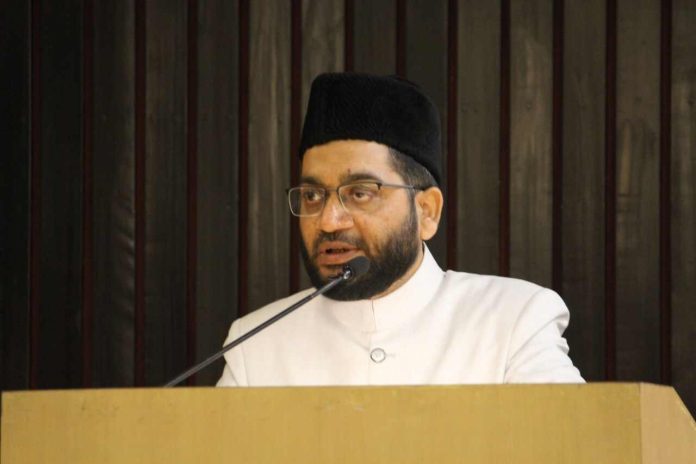New Delhi, Dec. 27: Waqf stands as a crucial pillar in the economic concept of Islam and the Islamic economic system, with India boasting the world’s largest number of Waqf properties, ranking third only after the Armed Forces and Indian Railways in land ownership, said Syed Sadatullah Husaini, President of Jamaat-e-Islami Hind.
Various committees, such as Syed Muzaffar Hussain Burney Committee, Nasrulla Committee, JR Aryan Committee, and Justice Sachar Committee, have been formed by different governments to identify and assess the status of Waqf properties. Reports from the committees, including those by Mir Nasrullah and the Burney panels, reveal that significant portions of Waqf land were illegally seized by private individuals and government agencies, sidelining rightful owners. Although the government has not fully implemented the recommendations of these committees.
Mr. Husaini underscored the importance of Waqf in societal development. He emphasized that Waqf plays a vital role in the whole economic concept of Islam.
Mr. Husaini highlighted India’s status as the largest holder of Waqf properties globally, forming a major hub alongside countries like Türkiye, Pakistan, Syria, Palestine, Makkah, and Medina. According to Justice Sachar Committee report, India possesses an estimated 60 million acres of Waqf properties, equivalent to roughly half the size of Punjab.
Delhi High Court was informed by the Government that nearly 120 petitions challenging the provisions of Waqf Act, 1995, are pending before various courts across the country.
While addressing major challenges, Mr. Husaini noted that 70-80% of Waqf lands are encroached upon, and the remaining 20-30% under Waqf Board control faces severe mismanagement and unproductive use, contrary to Islamic injunctions.
Mr. Husaini called for concrete efforts across legal, political, media, and public opinion fronts to safeguard and rejuvenate Waqf properties. He urged the Muslim community in India to collectively work on raising public awareness, closely monitoring government actions, engaging in media discourse, and making proactive efforts with state Waqf Boards.
Highlighting the need for full-time CEOs in some states like Uttar Pradesh, Telangana, Odisha, Maharashtra, Jharkhand, Himachal Pradesh, and Assam, Mr. Husaini stresses the importance of strengthening state Waqf Boards through such appointments.
Addressing the essential role of surveys mandated by Waqf Act 2013, Mr. Husaini disclosed a concerning fact: a decade after its enactment, only 11 out of 32 Waqf Boards have conducted surveys, which are incomplete and full of errors. He emphasized that this situation constitutes a clear violation of the Act.
Commending the launch of the Waqf Management Information System (WMIS) as a crucial stride toward transparency and accountability, the JIH president urged community members to actively engage with the platform. Accessible online, WMIS offers comprehensive data on Waqf properties, enabling public scrutiny and correction of discrepancies. Mr. Husaini added, “Through this platform, we can actively monitor property utilization and leases, exerting pressure for the streamlined management of Waqf.”
In a strong call to action, Mr. Husaini urged the community to unite and take tangible steps, including active participation in WMIS and involvement in awareness campaigns, to safeguard the future of Waqf properties in India.




